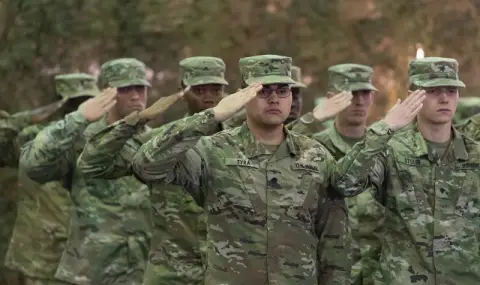NATO intends to coordinate the transport of large numbers of wounded soldiers away from the front lines in case of war with Russia, reports "Reuters".
This will eventually happen via hospital trains as air evacuation may not be feasible.
The future scenario for medical evacuations will differ from the experience of allies in Afghanistan and Iraq, explained Lieutenant General Alexander Solfrank, head of NATO's Logistics Command.
In a conflict with Russia, Western troops are likely to face a much larger war zone, a greater number of wounded soldiers and at least a temporary lack of air superiority near the front lines, the German general said.
"The challenge will be to quickly provide high-quality care for - in the worst case - a large number of wounded,'" Solfrank added, without specifying how many wounded soldiers NATO expects.
Planning medical evacuations is part of the Alliance's drive, prompted by Russia's 2022 invasion of Ukraine, to review and strengthen its capabilities to deter and defend against any Russian attack.
The German military has said it expects Russia to be able to attack a NATO country as early as 2029, and Russian President Vladimir Putin has labeled the West as an aggressor for arming Ukraine.
The war in Ukraine has led to the sharpest confrontation between Russia and the West since the 1962 Cuban missile crisis.
Solfrank leads NATO's Joint Support and Support Command, tasked with coordinating the rapid movement of troops and tanks into Europe, as well as logistical preparations such as ammunition storage on NATO's eastern flank.
Recently, the joint command - which is based in the German city of Ulm - organized an exercise to coordinate patient flows.
If a conflict with Russia were to arise, wounded soldiers would not simply have to be transported a greater distance than in other wars in recent years, Solfrank noted.
Russian air defenses and aircraft would threaten medical evacuation flights in a way that insurgents in Afghanistan or Iraq could not, likely creating a need for hospital trains that can transport more casualties at once than planes.
p>
"Air superiority will have to be achieved first. It will take time to succeed along the entire length and depth of the front line," Solfrank pointed out.
"All options should be considered for transporting large numbers of injured to medical facilities, which includes trains but possibly buses".
Different medical regulations between countries are another hurdle to overcome, Solfrank explained. A solution could be a "military medical Schengen," similar to the political Schengen area, which allows free movement across most of the European Union.
A free passage zone could be established for sensitive drugs, such as narcotics or strong painkillers, which would be needed to treat wounded soldiers, but whose cross-border transport is regulated.
